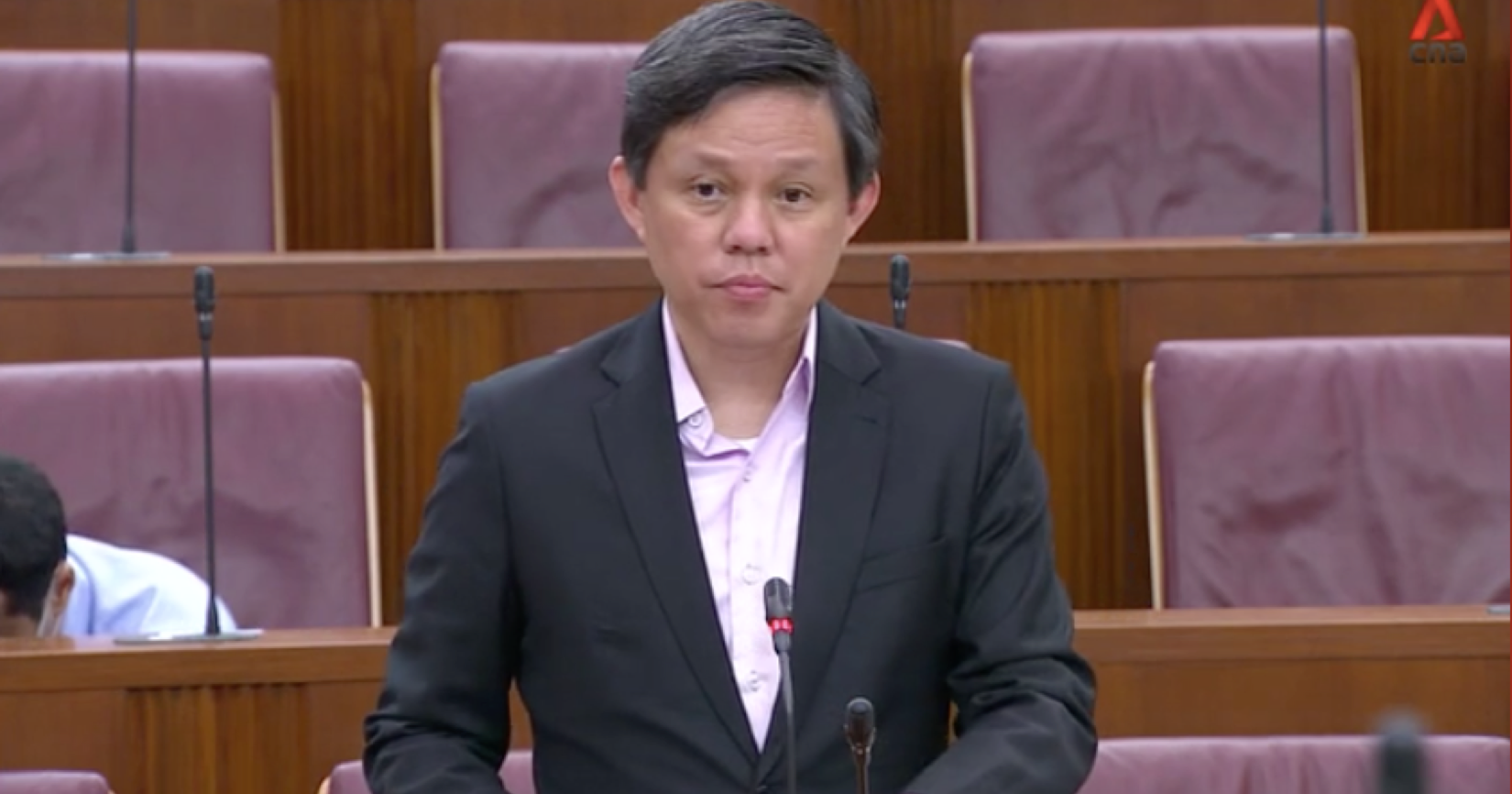The parliament passed a Bill today (May 4) related to contingency planning for the next General Election, which needs to be held by Apr. 14, 2021.
Called the Parliamentary Elections (Covid-19 Special Arrangements) Bill, it allows for the Elections Department (ELD) to implement safety measures to protect the health of voters, candidates and election officials.
Bill not related to the timing of the election
During his speech for the second reading of the Bill, Trade and Industry Minister Chan Chun Sing said that the Covid-19 situation is most likely to last many more months, including the possibility of recurring waves of infection across the world.
Hence, Chan, who was speaking on behalf of Prime Minister Lee Hsien Loong, said that the government must therefore "make contingency plans to safely conduct our next General Election under Covid-19 situation".
Chan said that "this is the responsible thing to do: To robustly plan ahead. To keep our citizens safe while upholding our democracy".
Chan also emphasised that it is not related to the timing of the election.
Chan added:
"The Prime Minister will decide when to call the election, considering the challenges confronting our country and the evolving COVID-19 situation."
In a press release, ELD said that the Bill does not cover other precautionary measures related to other matters, such as campaigning.
Those will be announced by ELD at a later date, taking into account Ministry of Health (MOH) advisories while allowing all parties to have sufficient time to prepare.
The Bill
The Bill covers two main groups, voters and candidates.
Candidates
An aspiring candidate may be hospitalised or in ill health in the lead up to Nomination Day.
So the Bill allows such candidates to authorise a representative to file nomination papers on their behalf.
This representative must fulfil certain criteria:
- A Singaporean citizen who is eligible to vote.
- Power of Attorney expressly authorising the representative to represent and act on behalf of the candidate at nomination proceedings.
- Authorisation to submit nomination papers and raise objections to the nomination papers of other candidates.
Voters
Voters who have been given a Stay Home Notice (SHN) will be able to vote while still maintaining their isolation, in a process similar to that of overseas voting.
They can mark their ballot papers in secret and deposit them in a single ballot box at special polling stations, even though they are from different electoral divisions.
Candidates, regardless of electoral division, and polling agents can be present at these special polling stations.
Once the polls are closed, the ballot box from each special polling station will be sealed and transported under police escort to a designated counting centre.
Candidates or their polling agents who are present in the special polling stations may place their seals on the ballot boxes.
The counting of the ballots will be done at a centralised counting centre, where ballots from the various special polling stations will be mixed together, and then sorted for counting, in order to preserve voting secrecy.
WP supports the bill
Workers' Party MP Sylvia Lim noted that holding a national election in the middle of a pandemic carries some risk, and said there was "unhealthy speculation on the ground" on the date of the GE.
Lim stated that WP had previously called for the government to be judicious in deciding on the timing of the GE, bearing in mind the twin priorities of public health and upholding democratic principles.
She asked the government to clarify what progress needs to be made on the virus front, before a GE could be held. While she had some other questions on how the provisions will be operationalised, she said that the WP would support the Bill.
Alternative methods of voting?
Nominated Member of Parliament (NMP) Walter Theseira asked about alternative methods of voting, such as remote electronic voting, that would allow those who are on quarantine or are ill on polling day to vote.
Responding to the questions, Chan said that the Elections Department will consult the Ministry of Health and the Ministry of Home Affairs nearer to Polling Day, to assess if the public health and security risks of allowing affected voters to leave their homes and making arrangements to vote in special polling stations can be managed.
ELD studying practices of countries, such as South Korea
Chan said: "I would also like to assure Associate Professor Walter Theseira and Ms. Lim that the intention is to enable every voter serving SHN at designated facilities to vote."
Chan also addressed questions on safety measures, and said that the ELD is studying the practice of countries which have held elections during the pandemic, such as South Korea.
Chan said the Koreans implemented many precautions and safety measures, such as wearing masks and maintaining safe distancing, and the South Korean Health Authority found that there were no local transmission cases arising from the elections.
Chan also addressed online voting, citing security concerns, such as not being able to tell who cast the vote, even if SingPass is used. In addition, there are system reliability and hacking concerns.
Related stories:
Top image from Channel News Asia video.
If you like what you read, follow us on Facebook, Instagram, Twitter and Telegram to get the latest updates.
